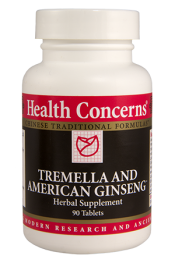Please Sign In or Register to access all E-Script Features
- Back
- Shop
- Back
- Brand
- Back
- Symptoms
- Back
- Practitioner
- Recent Orders
- My Profile
- Retainer
- My Formula Templates
- Back
- Patient
- Add Patient
- Patient Profile/ Order
Tremella & American Ginseng (90 Cap...
Close
Customize Rx Label
Reference Name (For your records)*
Formula Label Name (To be printed on label)
Pharmacy Instructions
dosing instruction
Manufacturer Label Unit Size
90 Capsules
Manufacturer Label Dosages
3 to 5 Capsules QID
Capsule (0.7g)
Times Daily
# of Days
Custom Instructions (60 charecters max)
(Clear this field to disable Custom Instruction)
New prices adjusted to include labelling service fees:
Patient : 0.00
Retainer : 0.00
Practitioner : 0.00
# of Refills
description
Therapeutic Actions
1.Use for treating such conditions involving dry cough: a...
patent formula
Tremella & American Ginseng
alternative name
product line
Health Concerns
dosage forms
Capsules
unit size
90 Capsules
dosage
3 to 5 Capsules QID
allergy warning
ingredients
Tremella fruiting body (bai mu er)







